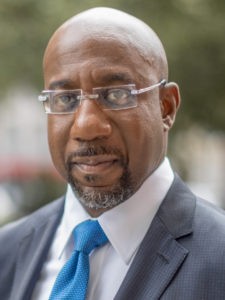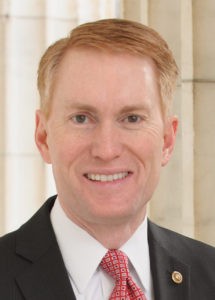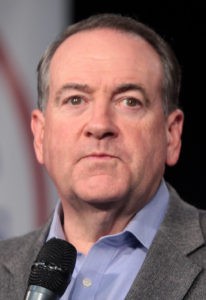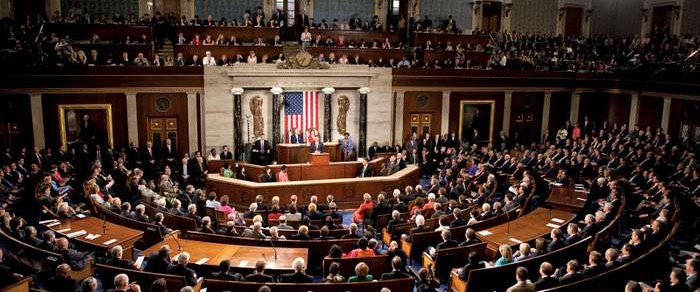Raphael Warnock’s election to the United States Senate has been hailed as historic for several reasons — being the first Black senator from Georgia at the top of the list — but he also will become one of the few clergy members serving in Congress.
“Only about 2% of members of the U.S. House of Representatives are ordained ministers,” according to research cited by The Conversation in a recent analysis. “Their numbers are scarce despite the fact that members of the clergy often possess speaking skills, have an impulse to serve and boast strong ties to their communities — all qualities that are useful in politics. Furthermore, Americans are among the most religious people in the Western world.”

Raphael Warnock
Warnock, a Democrat whose victory was certified by the Georgia Secretary of State today, will become one of only two ministers in the current Senate. The other is Republican Sen. James Lankford of Oklahoma.
Two senators, both Baptists
Both Warnock and Lankford are Baptists, but they represent polar opposites in modern Baptist theology and politics.
Warnock serves the historic Ebenezer Baptist Church in Atlanta — the pulpit once held by Martin Luther King Jr. He represents the progressive side of Baptists and of Protestant Christianity, steeped in the Black church tradition of liberation theology and the marriage of social justice and biblical theology.
In Georgia, he has been a vocal advocate for Medicaid expansion, support for the Affordable Care Act and opposition to the death penalty.

James Lankford
Lankford is a Southern Baptist from one of the most conservative of Southern Baptist states. He attends Quail Springs Baptist Church in Oklahoma City and previously worked 13 years coordinating student ministries and evangelism work for the Baptist General Convention of Oklahoma and was director of youth programming at Falls Creek Baptist Conference Center in Davis, Okla., a mega-camp associated with conservative evangelical ideology.
Falls Creek, for example, maintains a historically firm dress code for summer youth campers, requiring girls to wear “modest one-piece swimsuits” and prohibiting boys from wearing “tight fitting swimming suits.” Girls and boys are not allowed to swim at the same time, and all swimmers must cover themselves while in transit to and from the pool.
Lankford earned a master of divinity degree from Southwestern Baptist Theological Seminary, a Southern Baptist Convention school in Fort Worth, Texas. Warnock earned a master of divinity, master of philosophy, and doctor of philosophy degrees from Union Theological Seminary, a school affiliated with Columbia University.
Warnock helped lead the defense against President Donald Trump’s baseless accusations of voter fraud in the 2020 presidential election in Georgia. Lankford helped spread Trump’s accusations. After initially signing on to Texas Sen. Ted Cruz’s efforts to challenge the Electoral College votes in a joint session of Congress, Lankford backed down after the Jan. 6 attack on the Congress and the Capitol by riotous Trump supporters. He subsequently wrote a letter of apology to some of his Black constituents, claiming he had no idea questioning the outcome of the election would be perceived as harmful to the votes of Black citizens.
Baptists in politics
Everyone knows Jimmy Carter is a Baptist layman and Sunday School teacher, making him one of the most famous Baptist politicians of the 20th century. But he, like Harry Truman — also a Baptist — is a layman, not an ordained minister. Same for Bill Clinton, who even sang in the choir in his Baptist church in Little Rock while serving as governor.

Mike Huckabee
Another Arkansas Baptist minister, however, did make the leap from pulpit to politics — Mike Huckabee. Before his election as lieutenant governor and then governor of Arkansas, Huckabee as a pastor twice was elected president of the Arkansas Baptist State Convention. He went on to run unsuccessfully twice for the Republican nomination for U.S. president. But it was his daughter, Sarah Huckabee Sanders, who finally made it to the White House as one of Trump’s press secretaries.
Other Baptist ministers have served in Congress, but such has been rare. They include Ron Lewis, a Kentucky pastor and Republican member of the House of Representatives between 1994 and 2009 and a graduate of Southern Baptist Theological Seminary; William Herbert Gray III, seven-term Democratic representative from Pennsylvania; Adam Clayton Powell Jr., a 13-term Democratic Congressman from Harlem, N.Y., and pastor of the historic Abyssinian Baptist Church in Harlem; and John Hall Buchanan Jr., a 1957 graduate of Southern Baptist Theological Seminary and pastor of churches in Tennessee, Alabama and Virginia before being elected to the U.S. House from Alabama, serving from 1965 to 1981.
Ordained clergy in Congress
The Pew Research Center has explored the question of how many ordained clergy members have served in Congress throughout all time, and they cannot find an authoritative answer. However, the center reports that “all the ordained clergy who have served in Congress over the past 225 years have been Christians, and almost all of them have been Protestants.”
Frederick Muhlenberg, the first speaker of the U.S. House of Representatives, was a Lutheran minister from Pennsylvania.
Frederick Muhlenberg, the first speaker of the U.S. House of Representatives, was a Lutheran minister from Pennsylvania. He was one of at least nine ministers to serve in the Continental Congress. Pew reports the others were Benjamin Contee of Maryland, Abiel Foster of New Hampshire, James Manning of Rhode Island, Joseph Montgomery of Pennsylvania, Jesse Root of Connecticut, Paine Wingate of New Hampshire, John Witherspoon of New Jersey and John Joachim Zubly of Georgia.
Further, Pew found, the first African American to serve in Congress was a minister in the African Methodist Episcopal Church. The year was 1870 — less than five years after the end of the Civil War — when Hiram Rhodes Revels was elected by the Mississippi Legislature to fill a vacant seat in the U.S. Senate as a Republican. Pew adds this note: “Democrats in Congress tried to block Revels from taking office, arguing, among other things, that Revels had not been a U.S. citizen until the 14th Amendment was adopted in 1868. Revels’ own party rallied around him, however, and he was finally sworn in on Feb. 25, 1870. He served until his term expired in 1871.”
Two Catholic priests also have served as members of Congress, but that has been forbidden by the Vatican since 1983. The most notable of the two was Robert Drinan, a Jesuit priest from Massachusetts, who served as a Democratic member of the House of Representatives from 1971 to 1981 but was forced not to seek re-election by the Vatican prohibition.
Pew reports that no Jewish rabbi ever has served in Congress.
Religious makeup of the current Congress
The Pew Research Center also has analyzed data provided by the Congressional Research Service on the makeup of the 117th U.S. Congress. That data was compiled before the runoff election in Georgia and before President-elect Joe Biden tapped a few members of Congress to serve in his administration.
Both senators and representatives claim to be much more religious than Americans as a whole.
The research shows that both senators and representatives claim to be much more religious than America as a whole. While about one-fourth of Americans claim no religious affiliation, only one member of Congress claims no affiliation. That is Sen. Kyrsten Sinema, Democrat of Arizona.
While two-thirds of the American public identifies as Christian, 88% of the Congress claims identity as Christian. Pew reports that Congress “is both more heavily Protestant (55% vs. 43%) and more heavily Catholic (30% vs. 20%) than the U.S. adult population overall.”
One area where those elected to Congress are catching up to national trends on religion is this: There has been a multi-year increase in those who identify only as Protestants or as Christians without denominational label.
Pew found that Presbyterians, Episcopalians, Methodists and Jews remain overrepresented in Congress compared with their share in the general population and that Pentecostals, nondenominational Protestants and Baptists remain underrepresented. Baptists account for 12% of the current Congress but 15% of the total U.S. population.
Overall, there are five fewer Baptists in Congress this term than in the last term. However, Baptists still make up the largest bloc of Protestants serving in Congress today.
Related articles:
Understanding Black theology, white fragility | Greg Garrett
Why conservatives can’t get Jeremiah Wright out of their heads | Corrie Shull
In Georgia, demonizing Black Liberation Theology yet again | Steve Harmon

